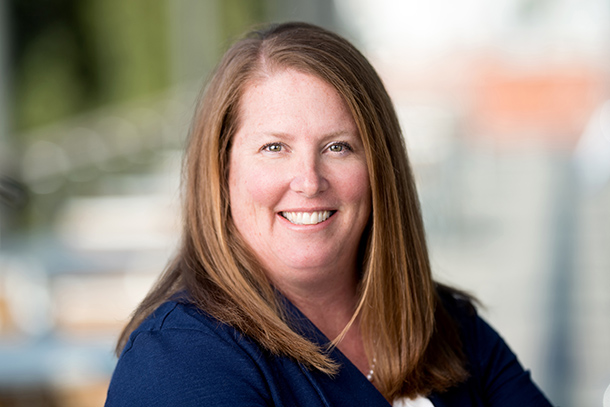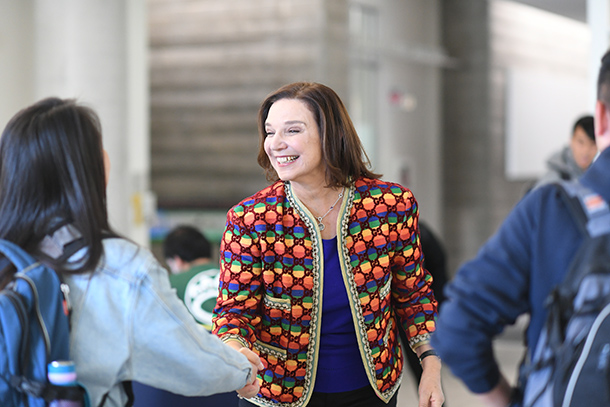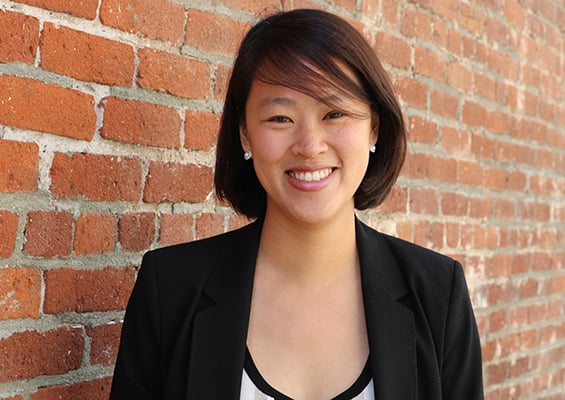Updated October 7, 2020 - In late 2019, Business Insider reported on Kohl’s joining an “exclusive club” of Fortune 500 companies with females in both the CEO (Michelle Gass) and CFO (Jill Timm) roles. Only The Gap, General Motors, and Williams-Sonoma can also make this claim. The trend is not so rare at Haas and Berkeley, however.
Haas’ Dean, Ann Harrison; Chief Strategy and Operating Officer, Courtney Chandler, MBA 96; CFO, Loretta Ezeife; and Chair of the Faculty, Catherine Wolfram are all female, as are UC Berkeley’s Chancellor, Carol Christ, and CFO, Rosemarie Rae.
Among the top 15 business schools nationwide, none have women in this number of key leadership roles. Two—Kellogg and Wharton—have female deans, and a handful have women in a CFO or similar role.
Dean Ann Harrison says she did a tremendous amount of homework before accepting the position. “I talked to a lot of other deans and got a strong sense of what I’d be doing, so there were no big surprises,” she says. “One of the things I was told over and over again is that being an academic leader requires a lot of grit.”
While that is true, Dean Harrison has been delighted at how much she has been able to move the needle on some of her planned goals in her first year. “Berkeley’s very much a shared governance place, so you would think it might take a long time to get things done,” she says. “In fact, one can get things done here fairly quickly. That’s been a really great thing.” She attributes the quick movement, in part, to the incredible staff at Haas: “We have this incredible staff where people truly go beyond themselves.”
Chief Strategy and Operating Officer, Courtney Chandler says her time at Haas has taught her that careers aren’t linear, and you have to make choices that create opportunity. She’s referring to the risk she took when she stepped into her previous role back in 2014, leading the Evening & Weekend MBA program office during a time of huge disruption. She received some of the best advice during that time: take on the jobs and projects no one else wants.

“It was tough but rewarding work. It often felt like building a plane while flying it,” she says. It taught her she didn’t need to have all the answers to take on bigger leadership roles. “I relied on a lot of people to provide information and learned to come with solutions, not problems.” She credits that role for getting her to where she is today. It also taught her to be comfortable with being uncomfortable.
Chandler says the most rewarding part of her current role—where she’s been for three years now—has been watching decisions she’s made positively impact others—whether it be students, faculty or staff. “It’s also been satisfying to solve really tough problems that almost seemed unsolvable,” she adds.
Take that next role and trust you'll figure it out."
The biggest challenge has been knowing there’s always more to be done. She cites some advice she received from past dean, Laura Tyson: don’t let great get in the way of good. “Sometimes we need to think that way,” Chandler says. “Don’t get trapped in trying to make a solution too perfect. Sometimes you need to try things and then iterate and adapt.”
When asked if it’s important for women to serve as mentors for other women, Dean Harrison says it’s critical. “You think you can’t do it until you see somebody who looks like you doing it.” She also emphasizes the importance of finding diverse role models, which Chandler agrees with. “I approach it more as a board of mentors rather than one-on-one relationships. Your most diverse group of mentors is your best bet,” Chandler says. “I also think there’s a lot you can gain from people who are junior to you, equal to you.”
Dean Harrison’s advice for finding these mentors: “Be more aggressive, speak up, lean in, don’t be afraid, never give up.”
Chandler's advice to women aspiring to high-level leadership: “Take that next role and trust you’ll figure it out. Women are too hard on themselves. Too often they wait to acquire all the presumed or listed skills and experience needed for that next step in their career. I say don’t wait, and instead look at the experience and skills you do have and think about how they can be viewed as transferable skills.”










